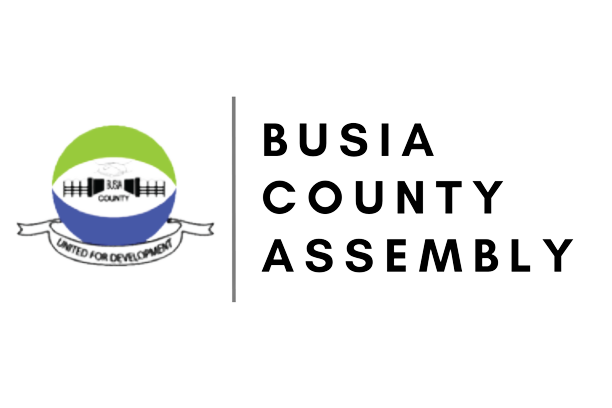House Broadcasting
Pursuant to SO 190 of County Assembly of Busia which provides for establishment of County Assembly Sectoral, Select & Special committees as organs in the working processes of Legislatures, without which, the proceedings of a Legislature could grind to a halt for the sheer volume of activities that would have to be considered at Plenary. They are agents, which enable Legislatures to organize their work in such a way as to perform numerous activities simultaneously and expeditiously on matters such as:
- Reviewing legislation;
- Reviewing and approving the budget and expenditures for the execution of governance;
- Scrutinizing governance activities, policies and programmes, assessing whether they meet the intended objectives of legislation, policy frameworks and development plans;
- Conducting investigations on special issues;
- Vetting and approving executive appointments;
- Providing a platform for public participation in the execution of specified business
Committees are an efficient way of running the business of the House. Well-functioning committees expand democratic governance. Committee mandates and membership focus attention on specific issues and engender meaningful deliberations. Committees have defined mandates and memberships. They study an issue or set of issues and then report back to the House. This allows individual Members to focus their attention on a subject matter,
The Committees enhances the ability of Members to be productively engaged in thenitty-gritty’s of the workings of a CA and so take ownership of its outcome. Members are able to discuss issues informally, are less constrained by party discipline and are able to develop relationships with colleagues who belong to other parties.
Select committees are mechanisms enabling public engagement and legitimization of the operations of the CA. It is a forum for members to interact and involve the public and various stakeholders in the work of the CA. committees hold hearings and meetings that provide the democratic opportunity for various interest groups (academics, professionals and individual citizens) with varied expertise, to participate by presenting their views on a range of issues.
The value and benefit accruing from the use of committees lie in the fact that they perform functions which, the House is not fitted to perform in its corporate form, such as:-
- Summoning persons to present oral evidence and written memoranda or documents;
- Sitting as frequently as is desirable, including, sitting away from the precincts of the CA and for longer hours;
- Availing an environment that can facilitate presentation of details, sifting through evidence and formulating reasoned conclusions, consistent with both the statute and procedure;
- Carrying out inspection tours, inquiry on matters out of which reports with recommendations are submitted to the House; and,
- Forming sub-committees for the effective and efficient discharge of varied issues within the mandate of the committees
The functions of committees are more efficiently carried out by small groups of members, among the several advantages of committees include; the possibility of several of them operating at the same time, thus enabling many matters to be dealt with concurrently and expeditiously.
Overall, by concentrating on specific matters or subjects, select committees also offer the benefits of specialization to both Members and staff.
Hon. Denzil Edung’lot Musumba – Chairperson
Hon. Bonventure Makokha – Member
Hon. Stephen Nasiagi – Member
Hon. Peter Talam- Member
Hon. Masinde Shadrack – Member
Hon. Maurine Ochieng- Member
Hon. Judith Odeda – Member
Hon. Concepta Omondi – Member
Hon. Isaac Wamalwa – Member
Role and Duties of the Clerk Assistant
The Clerk to the committee is responsible for the proper and efficient transaction of the business of the committee and the duties include the following:-
- Notices of Meetings: Logistical support on the scheduling of committee meetings/venue/notices. The Clerk prepares notices after consulting the chairperson and informs members.
- Program of Sittings: The Clerk prepares a programme of sitting based on issues agreed upon by the committee.
- Correspondence: Marshalling correspondence for the committee – incoming /outgoing mails.
- Taking of Minutes: It is the duty of the Clerk to take minutes of the proceedings of a committee.
- Quorum: A committee cannot proceed with the business unless a quorum is present. It is the duty of the clerk of a committee to draw the attention of the chair to lack of quorum.
- Procedural Adviser: The clerk of a committee is the chief procedural and technical adviser to the committee.
- Planning and coordination of committees activities both local and international.
- The link between the committee and stakeholders, coordinating summons to witnesses.
- The chairpersons brief: The clerk prepares a brief for the chairperson for committee meetings.
- Administration of oath or affirmation to witnesses: Witnesses are NOT normally examined on oath but whenever the need arises. The oath is usually administered by the clerk.
- Committee documents/papers: Maintaining and safe record keeping/custody of the committee’s report and other documents.
- Preparation of draft reports: Towards the end of an inquiry, the clerk should prepare a draft report as a guide for committee consideration.
- Committee work plans and budgets: The Clerk prepares the committee’s work plan, costing and manages the budget as apportioned by the Liaison Committee.
Angeline Anyango – Clerk Assistant
Brenda Kanani – Hansard Officer
Wilberforce Obola – Commissionare
| Title | Categories | Update Date | Download |
|---|
- Quarterly retreat from 24th to 27th Jan, 2024
- Site visits to County installations/sub-sector’s projects/programs in the Financial Year 2023/2024
